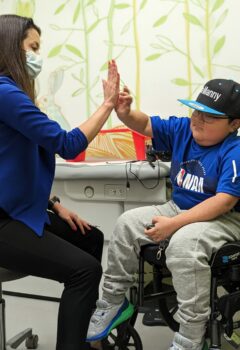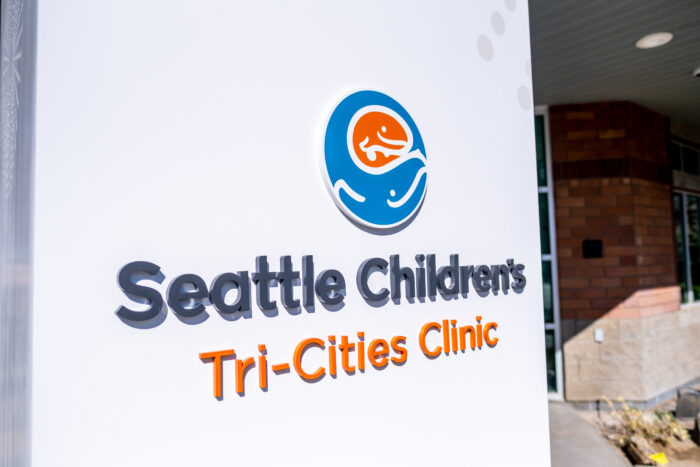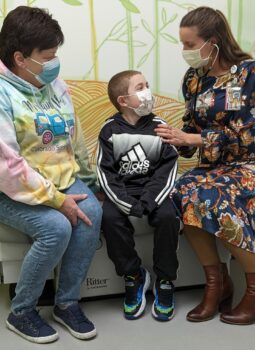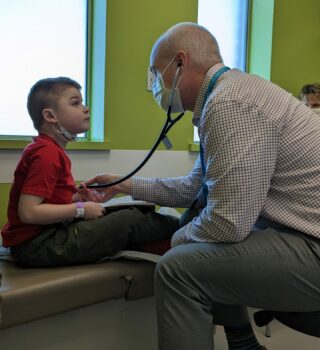
For families caring for children with nervous system disorders, compassionate, state-of-the-art care is sometimes out of reach.
When Dr. Alicia Henriquez, a clinical assistant professor of Neurology in Seattle Children’s Neurosciences Center, joined the organization two years ago, she hoped to be part of a team that would change that.
“I wanted to work with the Spanish-speaking community and with the regional clinics because in Eastern Washington there’s a large population of Spanish speakers,” Dr. Henriquez, who specializes in pediatric neuromuscular neurology and is multilingual, explained. “I knew it would be a good fit.”
Seattle Children’s has specialty regional clinics around the state, including Bellevue, Everett, Federal Way, Olympia, Tri-Cities and Wenatchee, and works closely with local healthcare providers to meet the needs of families in their home community.
Additionally, Seattle Children’s is expanding Spanish-language clinic access for Spanish-speaking families, which makes up approximately 18% of the patient population in Seattle Children’s, including Neurology, Urology, Otolaryngology, and Child and Adolescent Latino Mental Health Assessment and Treatment (CALMA) mental health clinic.
The regional clinics enable children to see the same doctors and nurses who take care of them at the main hospital in Seattle. At the Tri-Cities clinic, located in Kennewick, WA, over 15 medical specialties are offered, including neurology.

However, patients with muscular dystrophy (MD), including the most common and severe form of MD called Duchenne Muscular Dystrophy (DMD), typically require additional care to treat the genetic condition at Seattle Children’s main campus, but for some families, the trek to Seattle is not always easy.
“We were seeing a few cancellations in the winter months, and we think it is because it was difficult for these patients living in that region to make it over,” Dr. Henriquez explained.
The barriers can be both physical and social for families.
“Not only would the [mountain] passes sometimes close, but there is also a need for gas and lodging, some need to take several days off of work to go to Seattle, some have other kids in school, and some are single parents,” she added. “So, it can be nearly impossible to make it to the visit.”
In an effort to improve access for struggling families, Dr. Henriquez decided to bring the Neuromuscular Program to Tri-Cities and began hosting a neuromuscular multidisciplinary clinic, which she likes to call the super muscle clinic.


“The goal is to build a sustainable network that understands this population, which has very unique needs, so families can have access locally,” Dr. Henriquez said. “Neuro disorders are something that is long living; the disease does not go away, and families will need this support forever.”
During the super muscle clinic, the scheduled patients, most of which have DMD and vary in age, are seen by multiple providers from various subspecialties who travel to the children- rather than the other way around.
“We have neurology, rehabilitation medicine, cardiology, pulmonary, pulmonary function testing, and echocardiogram testing at the clinic. Social work, nutrition, and physical therapy are available via telemedicine,” Dr. Henriquez said. “Each child has a room assigned for the day, and the providers will rotate to see each patient.”
Seattle Children’s also provides trained medical interpreters for free throughout the day so that all families receive the same care and access to information, whether they speak English or not. Dr. Henriquez is able to personally communicate with Spanish-speaking patients and parents in their preferred language of care which many parents are grateful for.
“It’s a huge relief,” Dr. Henriquez shared. “If we weren’t traveling to them, many simply wouldn’t be able to make it to Seattle.”
Resources:
- Seattle Children’s Tri-Cities Clinic
- Clínica Tri-Cities de Seattle Children’s
- Interpreter Services – Seattle Children’s (seattlechildrens.org)
- Servicio de Interpretación en Seattle Children’s
- Neurosciences Center – Seattle Children’s (seattlechildrens.org)
- Neuromuscular Program – Seattle Children’s (seattlechildrens.org)
- Regional Clinics – Seattle Children’s (seattlechildrens.org)

